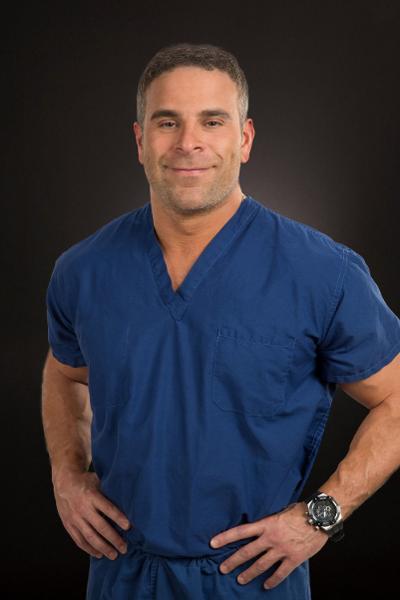
To Achieve Your Goals: Visualize, Actualize, Repeat
Dr. Brian Lima is an award-winning cardiac surgeon, associate professor of surgery, and recognized authority in advanced heart failure. He has published nearly 80 articles in peer-reviewed medical journals and presented at numerous national and international medical conferences. As the surgical director of heart transplantation at North Shore University Hospital, Dr. Lima helped launch the first and only heart transplant program on Long Island.
He has recently penned a new book, Heart to Beat: A Cardiac Surgeon’s Inspiring Story of Success and Overcoming Adversity — The Heart Way.
I had the opportunity to interview Dr. Lima recently. Here are some of the highlights of that interview:
Jill Griffin: Where did you grow up? Describe your early childhood and its significance on your life.
Dr. Brian Lima: The greatest hero I’ll ever know — my father — courageously fled Fidel Castro’s oppressive communist regime in Cuba with my mother and my two siblings, for the hope of a better life in the U.S. Penniless and unable to speak English, he worked countless hours in a pigment factory in Newark, NJ, inhaling toxic fumes. We could barely make ends meet, but I inherited a veritable treasure trove of life lessons.
My father regularly sat me down at the kitchen table for intense chats, schooling me on the harsh reality of life. I learned from him that a strong work ethic is the ultimate ‘talent,’ and complacency is everyone’s worst enemy!
Griffin: When did you first get the whisper that you wanted to be a doctor? And specifically, a heart surgeon?
Dr. Lima: My father suffered a life-threatening heart attack in his early fifties, when I was only ten years old. It was the biggest scare I or anyone in our family had ever experienced. He was the center of our universe, and life without him was unfathomable.
This traumatic experience left an indelible mark on me, impacting not only my career trajectory but also how I approach my own health. From that moment on, I vowed to dedicate my life to helping people and their families pull through their encounters with heart disease, just as my family had so many years ago.
As my experience mounted during the required decade of surgical training, my specific calling came to light. When I first witnessed the mini-miracle of a heart transplant, it was love at first sight. Nothing beats watching a heart that you just sewed into someone — after it was removed from another person hours earlier — instinctively take off like a runaway train. You know at that instant that you not only saved someone’s life, but you’ve literally restored their quality of life, something they lost long ago, as their failing heart progressively decimated their daily existence.
Griffin: In your book Heart to Beat, you share a story from when you were in eighth grade that was a turning point in how you approached life. Can you tell us about it?
Dr. Lima: This was among the most embarrassing yet pivotal early moments of my life, when I came face to face with the consequences of halfhearted effort. It was my eighth graduation ceremony where I watched my buddy Gerard, also from an immigrant family, win every single award. It dawned on me that I hadn’t given my best effort. I had blown it and let my family down. He wasn’t smarter or more gifted—he just worked harder than I did. I vowed right then and there that no matter what, I was going to bring my “A” game. I awoke what I call an “urgency of purpose.” It propelled me forward like a turbo boost, and I’ve never let my foot off the gas since.
Griffin: What’s a great piece of advice you’ve received, who gave it to you, and how has it enhanced your life?
Dr. Lima: My father’s sage words of advice continue to reverberate loudly in my subconscious, whenever I’m confronted with a seemingly insurmountable challenge, and I begin to doubt whether I’m up for the task at hand. He repeatedly preached that “no one is special”—everyone puts their pants on one leg at a time. No one is entitled to or predestined for success. Some may have a leg up, but victory is earned, not bestowed.
So, whenever I begin second guessing my capabilities, I have a go-to mindset switch that my father helped embed in my thought process. It starts with asking myself a very simple question: “If other people, mere mortals just like me, can accomplish that feat, why can’t I?” In an instant, all of my anxiety, reluctance, fear, and doubts begin to fade away.
Griffin: One of the lessons you share in your book is “no regrets allowed.” It’s hard not to get stuck on mistakes. How can people avoid second-guessing themselves?
Dr. Lima: This comes down to wholeheartedly embracing a “growth mindset,” and taking solace in the fact that no single failure or poor performance defines you.
Never second-guess decisions you made along the way that seemed like the correct move at the time. The should’ves, would’ves, could’ves will drive you insane, if you let them. And, oftentimes, what may seem like a mistake or a wrong turn hasn’t had enough time to manifest positively in your life yet.
It’s not to say you shouldn’t learn from past errors and failures, but dwelling on them to the point that you lose your edge is pointless and self-defeating. Always keep your head high, own your past, cherish the present, and never bank on the future.
No matter how bad things seem, you have to force yourself to remember that what’s done is done. The past is in the past. Discipline your thought process so you don’t keep reliving that awful or embarrassing moment. Focusing on the here and now when you’re still aching from the sting of whatever that misstep was is the way you move on, grow, and improve.
Griffin: What advice do you have for young, talented, ambitious people who want to rise?
Dr. Lima: Beyond medicine, I hope to inspire others to also shoot for the stars and never give up on their dreams. I’m living proof that slow and steady still wins the race, that the American Dream is alive and well. If I can be successful, so can anyone else willing to put in the blood, sweat, and years. That is the message of hope and inspiration I want to convey to anyone who’ll listen because living a less than ordinary life is no one’s destiny. Many of us are only scratching the surface of our true potential, and I hope to help deliver that spark for others to unleash it! We can never afford to settle comfortably into cruise control and rest on our laurels. There’s nothing passive about this process, because self-discovery and self-improvement are lifelong endeavors. It’s not a means to an end, because, technically speaking, there is no end—only continuous optimization.
Visualize. Actualize. Repeat.



